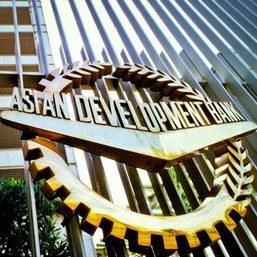SUMMARY
This is AI generated summarization, which may have errors. For context, always refer to the full article.
![[Vantage Point] Why the ADB should rethink its investment in Dali Hard Discount](https://www.rappler.com/tachyon/2024/06/thought-leaders-adb-investing-in-scam-.jpg)
The Asian Development Bank (ADB) is a regional development bank that works “to eradicate extreme poverty.” Established in 1966, it is owned by 68 member-countries – 49 from Asia. It supports projects in developing member countries “that create economic and development impact.” In other words, through its investments in countries like the Philippines, ADB hopes to be able to contribute to our country’s poverty alleviation efforts.
ADB’s recent $10 million investment in the grocery chain Dali appears, at first glance, to be a commendable initiative consistent with the institution’s objectives. Establishing more branches of Dali is intended to generate employment opportunities to the Filipino workforce and provide affordable products to consumers, something that could potentially benefit low-income families.
Operated by Hard Discount Philippines, Incorporated, Dali Everyday Grocery now has around 630 stores in rural and urban Luzon areas far from business districts. Each store, often manned by just two cashiers and no bagger, has no advertising and offers no frills and no extra service.
A closer look, however, at the products on Dali’s shelves reveals a troubling fact that cannot be overlooked: the products sold in its stores are not just cheap – they are substandard knockoffs that flagrantly violate the intellectual property (IP) rights of established brands and companies.
Someone may ask, what’s the harm in selling cheap fakes? To be clear, IP theft is not a victimless crime. It undermines the very principles of innovation and fair competition that are crucial for economic development, particularly in a country like ours. The products on Dali’s shelves, with packaging and names suspiciously similar to well-known brands, are clear infringements of IP laws. They are not merely lookalikes; they can pass off as counterfeit goods that deceive consumers and steal from the established, reputable companies – some of which are owned by our countrymen.
IP violation
Here are some examples of these blatant IP violations:
- There’s a liver spread named “Rene” with packaging that mimics that of the popular local brand Reno.
- There is also a drink named “Bakakult” that tries to pass itself off as the Japanese drink Yakult.
- Want a cheaper version of Red Horse Beer? Dali has “Tamaraw,” which comes in the colors of San Miguel’s best-selling strong beer.
- Are you looking for a faux Star Margarine? Dali has “Margie Margarine.”
- If you’re craving Nutella, just go to Dali and grab a bottle of “Gonutt.”
- Need something to whiten your clothes? Why get Zonrox when you can purchase “Kingrox” from your local Dali store?
The possibility that these products could be as good as the originals is beside the point. Counterfeiting is stealing. Flouting IP laws is simply theft writ large.
By investing in Dali, ADB is inadvertently supporting and perpetuating an illegal practice. This is particularly concerning, given that many of the original brands being imitated belong to companies from ADB’s own member countries. The message being sent is contradictory and harmful: on one hand, promoting economic growth and innovation, and on the other, supporting a business model that undermines these very objectives through IP theft.
Unfair competition
Protecting intellectual property matters for several reasons. First, it ensures that creators and innovators are rewarded for their contributions and incentivized to continue developing new products and technologies. Without IP protection, there is little motivation for companies to invest in research and development, leading to a slowdown in innovation.
Second, it ensures a fair competitive market where businesses compete on the quality and uniqueness of their offerings, not on their ability to mimic others.
Third, IP protection is essential for consumer trust. When consumers purchase a product, they need assurance that it meets the standards and quality associated with the brand. By riding on established brands, these fakes unfairly profit from the consumer trust earned by the original brands. What’s worse, if the fakes are poor copies of the originals, the latter must bear the consequences of their doppelgängers’ mediocrity.
At least one affected company has filed a case against Dali operator Hard Discount before the Intellectual Property Office of the Philippines (IPOPHL).
“NutriAsia has accused Hard Discount for trademark infringement, unfair competition, and copyright infringement,” according to a Malaya report on June 3.
Some netizens, including an IP law professor, have raised questions about Dali’s copycat practices, posting photos of the Dali products alongside the products that they were apparently patterned after.
If the ADB continues to follow this questionable path of enabling such questionable acts, the Department of Trade and Industry (DTI) must then take decisive action to address this issue. The presence of counterfeit goods and and knockoffs in the market not only harms legitimate businesses, but also misleads consumers and tarnishes the country’s reputation as a supporter of fair trade practices.
Dali’s business model should not be allowed to flourish under the guise of providing affordable goods. These copycats harm local businesses and consumers alike, and have no place on the shelves of Dali or any store in the country. – Rappler.com
Val A. Villanueva is a veteran business journalist. He was a former business editor of the Philippine Star and the Gokongwei-owned Manila Times. For comments, suggestions email him at mvala.v@gmail.com.
Add a comment
How does this make you feel?








There are no comments yet. Add your comment to start the conversation.